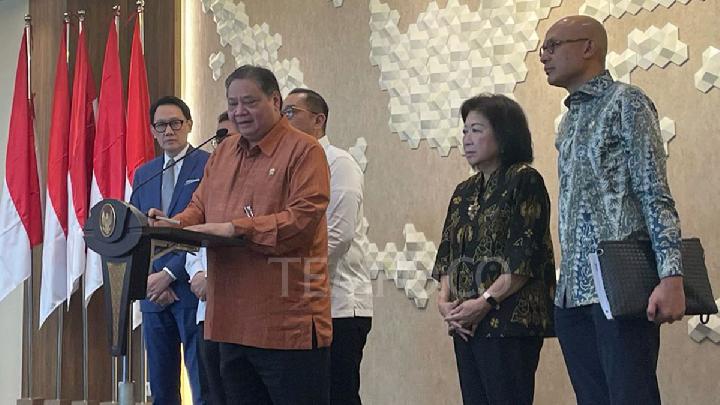TEMPO.CO, Jakarta - UNESCO has included sixteen new Global Geoparks, among them two significant geoparks from Indonesia: Kebumen Geopark and Meratus Geopark. This expansion brings the total number of UNESCO Global Geoparks to 229, spanning across 50 countries worldwide.
Designation as a UNESCO Global Geopark signifies international recognition of a region's geological heritage of outstanding value. Established in 2015, this network underscores the pivotal role of knowledge, culture, and the engagement of local and indigenous communities in the stewardship of geological heritage, the organization of educational initiatives, and the implementation of sustainable development strategies within the designated areas.
Kebumen Geopark: A Chronicle of Earth's Geological History
Kebumen Geopark safeguards crucial records of Earth's geological history, showcasing the oldest rock formations on the island of Java. A key focal point within this area is the Karangsambung site, a natural geological laboratory that exposes rocks from ancient oceanic and continental plate boundaries, formed tens of millions of years ago.
These formations offer a real-world illustration of plate tectonics, revealing ancient seabeds lifted to the surface. Beyond the rocks, discover prehistoric marine fossils and an intriguing network of underground caves and rivers.
The geopark plays a vital role in environmental preservation, enhancing public awareness regarding geological heritage, and promoting sustainable development. One of the efforts is the establishment of turtle conservation station along the beaches of Jogosimo, Tambak Mulyo, and Lembu Purwo. In these protected areas, turtle eggs, previously vulnerable to poaching, are relocated to secure nesting sites until they hatch.
Furthermore, the Pandanus leaf holds significant cultural importance within this region. The tradition of pandan weaving, a practice passed down through generations, remains a relevant economic activity for local communities. The cultural richness of Kebumen Geopark is further manifested in Javanese traditions, handicrafts, and distinctive local cuisine, collectively showcasing the unique identity of the region.
Meratus Geopark: A Window to the Jurassic and Indigenous Heritage
Meratus Geopark holds fascinating geological records of the complex tectonic evolution from the Jurassic period, approximately 201 to 145 million years ago. This area is home to the oldest ophiolite sequence in Indonesia and contains significant diamond deposits. This deep geological history has shaped the region's diverse landscape and supports a rich biodiversity, including various captivating orchid species such as the moon orchid and the sugar cane orchid.
The proboscis monkey, previously endangered, now serves as the official mascot of South Kalimantan Province. This geopark plays a critical role in the restoration of vital mangrove ecosystems, which constitute the primary habitat for the proboscis monkey. These dedicated conservation efforts have contributed to the increase in the species' population.
The geopark is also the ancestral home to two prominent indigenous groups, the Banjar and the Dayak, who continue to maintain their rich cultural traditions. This includes vibrant trading activities in the Lok Baintan Floating Market, conducted using traditional small boats known as jukung, and the traditional transportation method of the Daya Meratus people called Balanting Paring. Sasirangan cloth has been an integral part of the Banjar tribe's cultural identity since 1335, with each distinct motif and color carrying its own symbolic meaning.
This geopark also hosts various festivals and cultural events, such as the Meratus Great Culture Carnival, the Meratus Geopark Run, and the Floating Market Festival, providing vibrant showcases of the region's rich local cultural heritage.
Audrey Azoulay, the Director-General of UNESCO, emphasized that the preservation of geological heritage and geoparks serve as beacons for sustainable development, conservation, and education, demonstrating the essential synergy between economic progress and environmental protection. "I extend my sincere congratulations to the dedicated managers of these newly designated sites," Azoulay stated in a written address.
The newly recognized geoparks join the network from countries including China, the Democratic People's Republic of Korea, Ecuador, Italy, Norway, the Republic of Korea, Saudi Arabia, Spain, the United Kingdom, and Vietnam, reflecting UNESCO's ongoing commitment to expanding the geopark concept globally, particularly in underrepresented regions through expert support and training.
Editor’s Choice: Meratus Geopark: A New Frontier for Tourism Development in South Kalimantan
Click here to get the latest news updates from Tempo on Google News












































